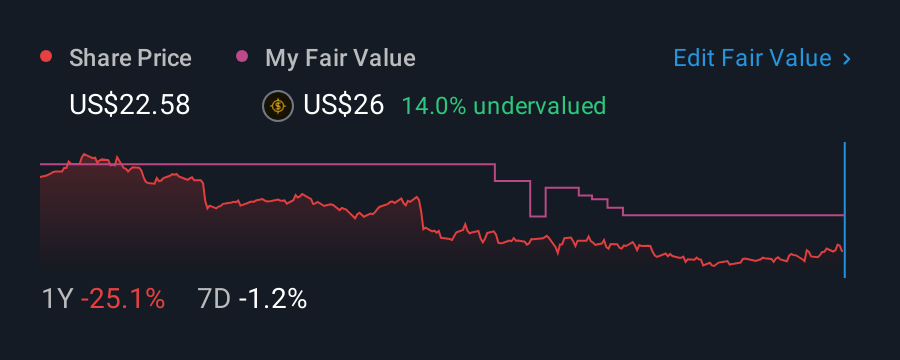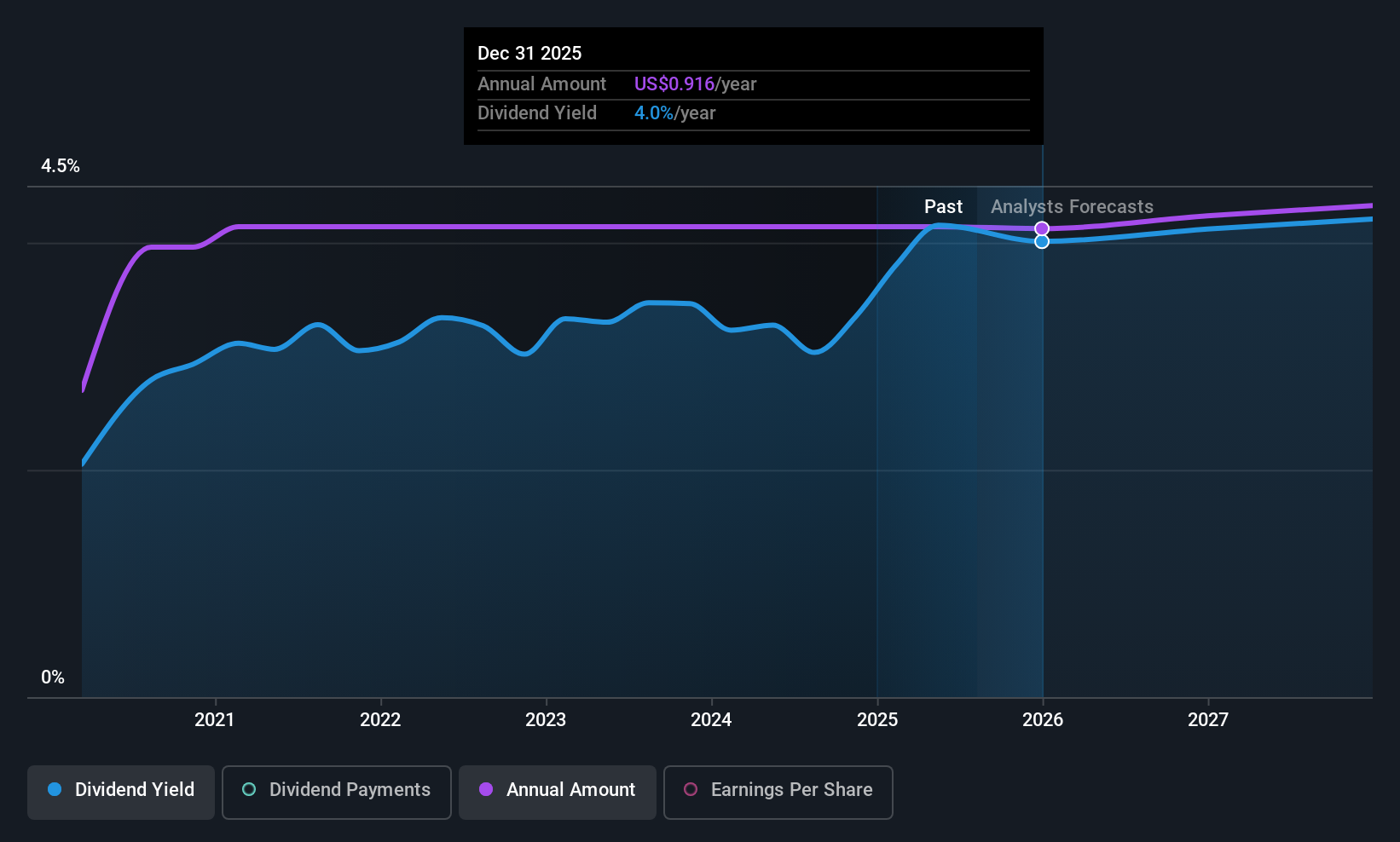

Reynolds Consumer Products Inc. (NASDAQ:REYN) is about to trade ex-dividend in the next 4 days. The ex-dividend date is one business day before the record date, which is the cut-off date for shareholders to be present on the company's books to be eligible for a dividend payment. The ex-dividend date is an important date to be aware of as any purchase of the stock made on or after this date might mean a late settlement that doesn't show on the record date. This means that investors who purchase Reynolds Consumer Products' shares on or after the 15th of August will not receive the dividend, which will be paid on the 29th of August.
The company's next dividend payment will be US$0.23 per share, on the back of last year when the company paid a total of US$0.92 to shareholders. Based on the last year's worth of payments, Reynolds Consumer Products has a trailing yield of 4.0% on the current stock price of US$22.85. Dividends are a major contributor to investment returns for long term holders, but only if the dividend continues to be paid. So we need to investigate whether Reynolds Consumer Products can afford its dividend, and if the dividend could grow.
Dividends are typically paid out of company income, so if a company pays out more than it earned, its dividend is usually at a higher risk of being cut. Reynolds Consumer Products paid out 62% of its earnings to investors last year, a normal payout level for most businesses. A useful secondary check can be to evaluate whether Reynolds Consumer Products generated enough free cash flow to afford its dividend. Dividends consumed 64% of the company's free cash flow last year, which is within a normal range for most dividend-paying organisations.
It's encouraging to see that the dividend is covered by both profit and cash flow. This generally suggests the dividend is sustainable, as long as earnings don't drop precipitously.
See our latest analysis for Reynolds Consumer Products
Click here to see the company's payout ratio, plus analyst estimates of its future dividends.

Have Earnings And Dividends Been Growing?
Companies that aren't growing their earnings can still be valuable, but it is even more important to assess the sustainability of the dividend if it looks like the company will struggle to grow. If earnings decline and the company is forced to cut its dividend, investors could watch the value of their investment go up in smoke. With that in mind, we're not enthused to see that Reynolds Consumer Products's earnings per share have remained effectively flat over the past five years. We'd take that over an earnings decline any day, but in the long run, the best dividend stocks all grow their earnings per share. Earnings per share growth has been slim, and the company is already paying out a majority of its earnings. While there is some room to both increase the payout ratio and reinvest in the business, generally the higher a payout ratio goes, the lower a company's prospects for future growth.
The main way most investors will assess a company's dividend prospects is by checking the historical rate of dividend growth. Since the start of our data, five years ago, Reynolds Consumer Products has lifted its dividend by approximately 8.9% a year on average.
The Bottom Line
Has Reynolds Consumer Products got what it takes to maintain its dividend payments? Earnings per share have barely grown, and although Reynolds Consumer Products paid out over half its earnings and free cash flow last year, the payout ratios are within a normal range for most companies. To summarise, Reynolds Consumer Products looks okay on this analysis, although it doesn't appear a stand-out opportunity.
If you're not too concerned about Reynolds Consumer Products's ability to pay dividends, you should still be mindful of some of the other risks that this business faces. For example - Reynolds Consumer Products has 1 warning sign we think you should be aware of.
A common investing mistake is buying the first interesting stock you see. Here you can find a full list of high-yield dividend stocks.
Have feedback on this article? Concerned about the content? Get in touch with us directly. Alternatively, email editorial-team (at) simplywallst.com.
This article by Simply Wall St is general in nature. We provide commentary based on historical data and analyst forecasts only using an unbiased methodology and our articles are not intended to be financial advice. It does not constitute a recommendation to buy or sell any stock, and does not take account of your objectives, or your financial situation. We aim to bring you long-term focused analysis driven by fundamental data. Note that our analysis may not factor in the latest price-sensitive company announcements or qualitative material. Simply Wall St has no position in any stocks mentioned.